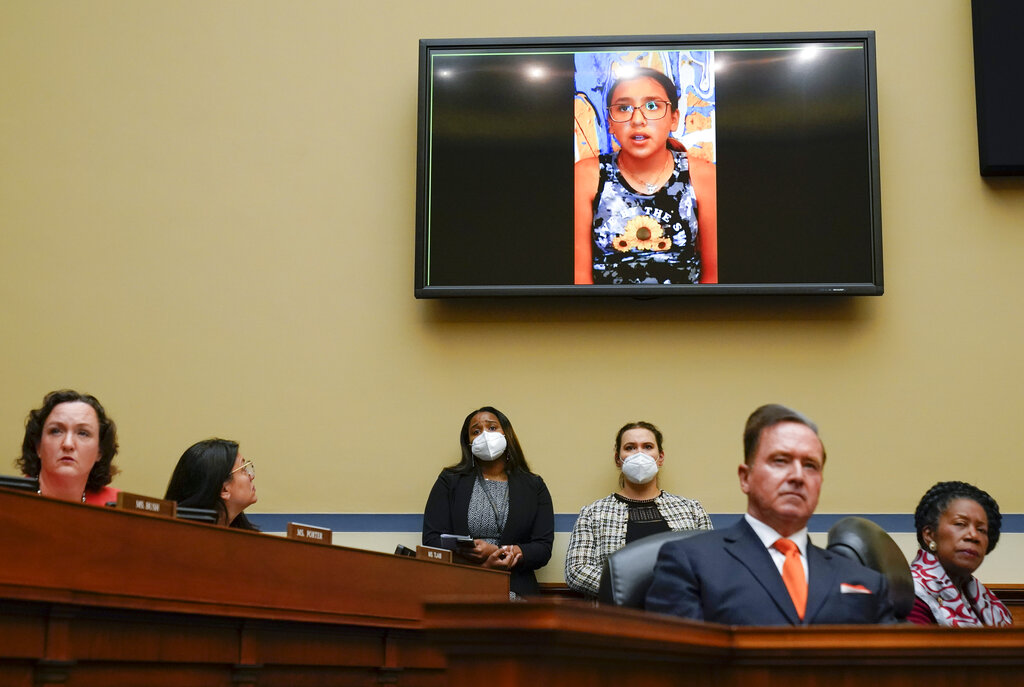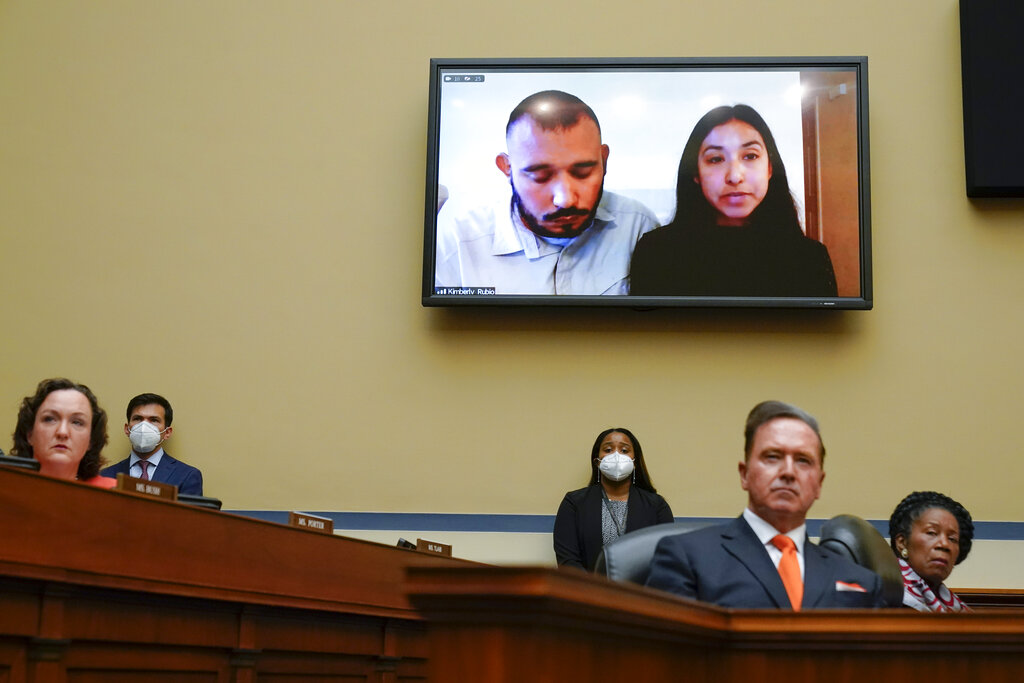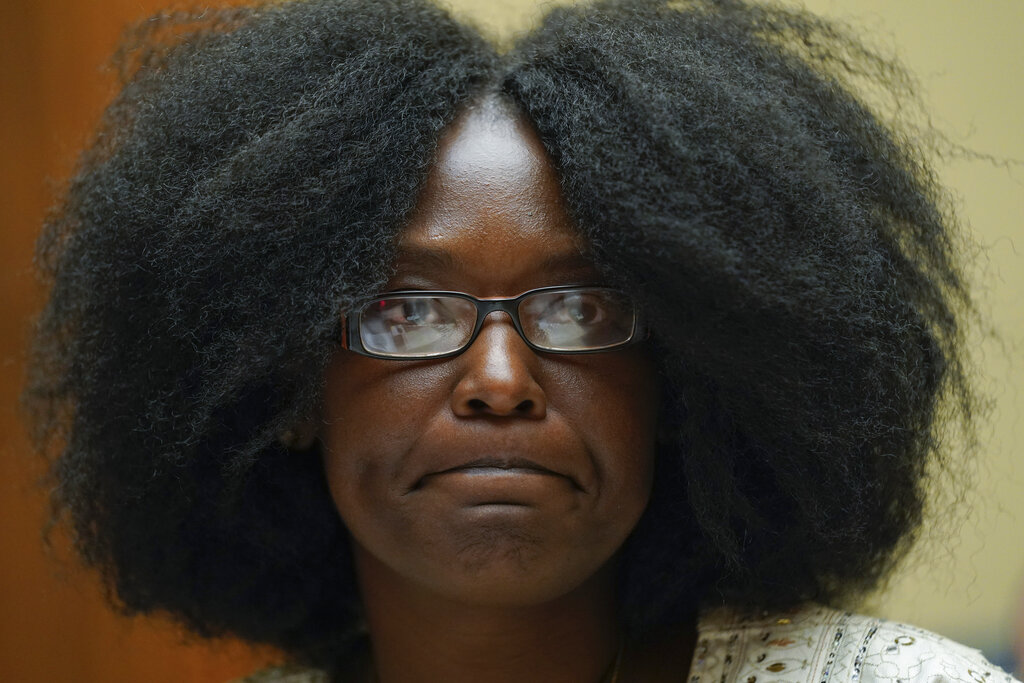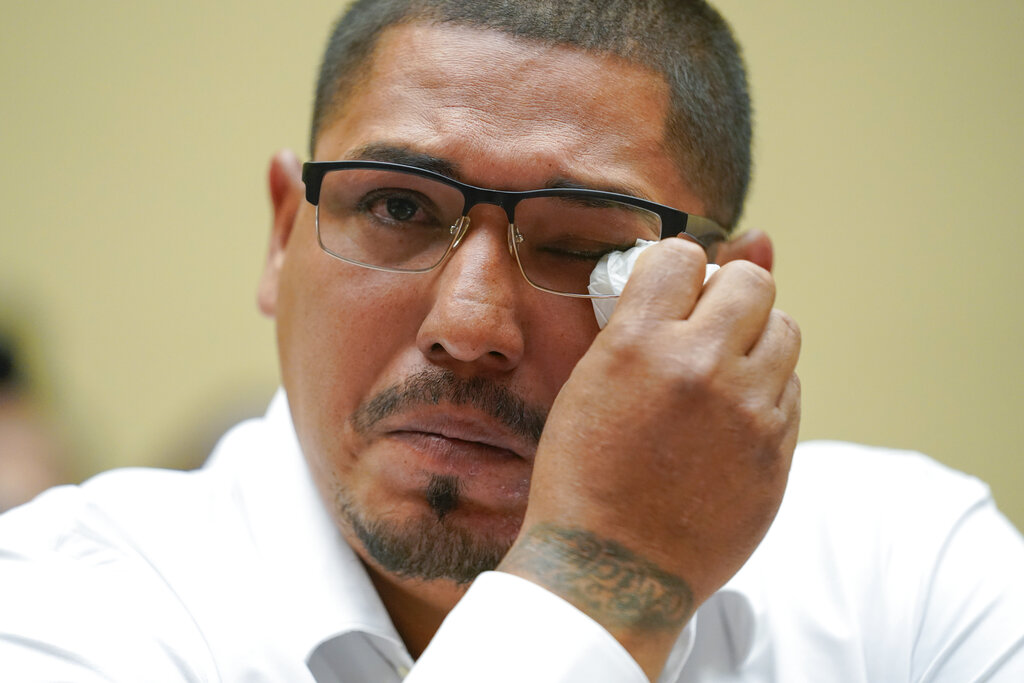WASHINGTON (NewsNation) — “I don’t want it to happen again,” 11-year-old fourth-grader Miah Cerrillo said recounting the Uvalde, Texas, school massacre she survived.
“I took my friend’s blood and put it all over me,” she said in the video, describing how her teacher and her friend were shot and killed in front of her. “And I thought he would come back to the room.”
Miah spoke out in pre-recorded video testimony as family members of victims and survivors of the mass shootings in Uvalde and in Buffalo, New York, appeared before members of the U.S. House Committee on Oversight and Reform Wednesday.
Miah is dealing with the trauma she suffered during the shooting, and healing from physical injuries that include bullet fragments in her back.
She said she is afraid to go back to school for fear of another shooting. She said students must “have security,” shaking her head “no” when asked if she feels safe.
“She’s not the same little girl that I used to play with,” Miah’s father, Miguel Cerrillo, told the committee. “I came because I could’ve lost my baby girl.”
He described Miah, his middle child, as “everything, not only for me but her siblings and her mother.”
Cerrillo pleaded for some kind of change to protect children in school.
“I wish something would change, not only for our kids, but every single kid in the world, because schools are not safe anymore,” he said.
Cerrillo said his daughter wanted to appear in person and explain what she experienced because “she wants to make safer schools.”
The parents of Alexandria “Lexi” Rubio, a fourth-grader killed in the Robb Elementary School shooting, also made an emotional plea in their testimony, asking the committee to remember her as more than “just a number.”
Felix and Kimberly Rubio recounted finding out about their daughter’s death hours after leaving Lexi’s school awards ceremony on the morning of the shooting.
To get to the elementary school, Kimberly Rubio said she ran barefoot for a mile with her sandals in her hand and with her husband by her side.
“Soon after we received the news that our daughter was among the 19 students and two teachers that died as a result of gun violence,” she said, fighting through tears.
“We told her we loved her and we would pick her up after school,” Kimberly Rubio said, recounting the last time she spent with her daughter. “I left my daughter at that school, and that decision will haunt me for the rest of my life.”
She said that Lexi would have made a positive change in the world if she had been given the chance.
“Somewhere out there, there’s a mom listening to our testimony, thinking I can’t even imagine their pain, not knowing that our reality will one day be hers unless we act now,” Kimberly Rubio said.
“What in the world is wrong with this country? Children should not be armed with weapons,” Zeneta Everhart, the mother of Zaire Goodman, said during her testimony. “Parents who provide their children with guns should be held accountable.”
Zaire, 20, worked at a Tops Friendly Market in Buffalo when an 18-year-old gunman opened fire in what authorities have termed a racist attack. He was shot in the neck and the back, injuries from which he is still recovering.
“To the lawmakers who feel that we do not need stricter gun laws, let me paint a picture for you,” she said. “My son, Zaire, has a hole in the right side of his neck. Two on his back and another on his left leg — caused by an exploding bullet from an AR-15. As I clean his wounds, I can feel pieces of that bullet in his back. Shrapnel will be left inside of his body for the rest of his life. Now, I want you to picture that exact scenario for one of your children.“
Ten people were killed when an 18-year-old gunman opened fire on Black shoppers in the Buffalo grocery store. Less than two weeks later, another teenage gunman with a semi-automatic rifle opened fire at Robb Elementary, killing 19 schoolchildren and two teachers.
Dr. Roy Guerrero, a pediatrician in Uvalde, described to the House panel the bloody scene he witnessed while treating wounded students in the emergency room.
“I know I’ll never forget what I saw that day,” he said, describing children who had been “pulverized” and “decapitated” by bullets.
“Those mothers’ cries, I will never get out of my head,” Guerrero said.
“Innocent children all over the country today are dead because laws and policy allow people to buy weapons before they’re legally old enough to even buy a pack of beer,” Guerrero continued. “They’re dead because restrictions have been allowed to lapse.”
The son of Ruth Whitfield, an 86-year-old woman killed in the Buffalo supermarket, challenged Congress Tuesday to act against the “cancer of white supremacy” and the nation’s epidemic of gun violence.
“What are you doing? You were elected to protect us,” Garnell Whitfield Jr. told members of the Senate Judiciary Committee.
“Is there nothing that you personally are willing to do to stop the cancer of white supremacy and the domestic terrorism it inspires?” he asked. “If there is nothing, then, respectfully, Senators … you should yield your positions of authority and influence to others that are willing to lead on this issue.”
Senators have been meeting privately in a small bipartisan group headed by Democrat Sen. Chris Murphy of Connecticut and Republican Sen. John Cornyn of Texas, trying to hash out a compromise that could actually become law.
President Joe Biden has been meeting with the group in an attempt to secure a deal.
“As a nation, we have to ask when in God’s name are we going to stand up to the gun lobby?” Biden said last month in the days after the Uvalde shooting. “I am sick and tired of it. We have to act. Don’t tell me we can’t have an impact on this carnage.”
The Democratic-led House passed a bill raising the minimum age to purchase a semi-automatic weapon to 21 Wednesday. But the legislation has almost no chance of becoming law as the Senate pursues negotiations focused on improving mental health programs, bolstering school security and enhancing background checks.
But the House bill does allow Democratic lawmakers a chance to frame for voters in November where they stand on policies that polls show are widely supported.
Lawmakers have been here before — unable to pass any substantial gun safety laws in decades in the face of steep objections from Republicans in Congress, some conservative Democrats and the fierce lobby of gun owners and the National Rifle Association. No major legislation has made it into law since the 1994 assault weapons ban, which has since expired.
The Associated Press contributed to this report.




